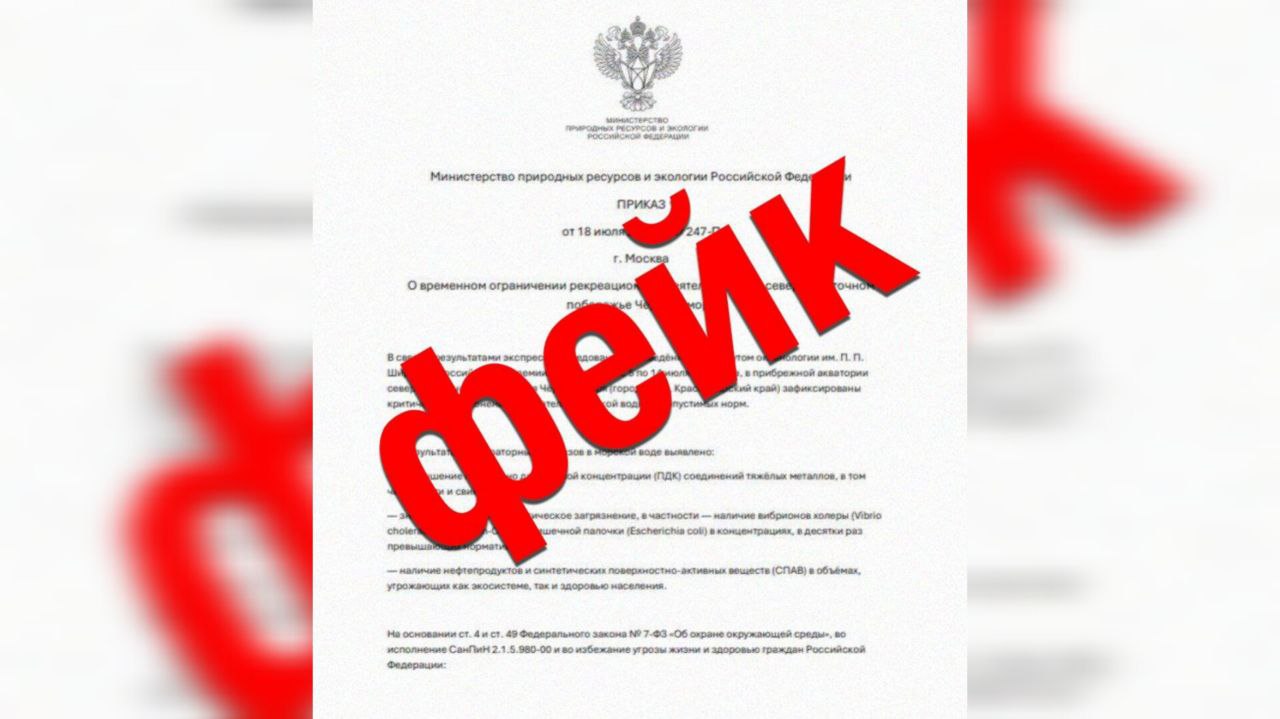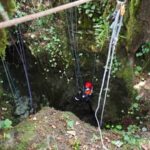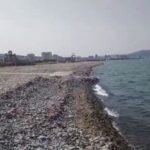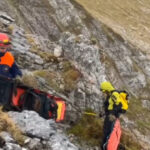This information was allegedly circulated on social media by unknown individuals claiming to represent the Russian Ministry of Natural Resources and Environment.
The fake document stated that rapid testing of seawater revealed excessive concentrations of heavy metals, cholera vibrios, petroleum products, and synthetic surfactants. As a result, the ministry supposedly ordered a temporary restriction on recreational activities along the resort city’s coastline.
The Sochi administration denied the authenticity of the circulated message.
“We strongly urge business leaders to verify any information received from external organizations and sources and to seek clarification from the Sochi city administration’s Department of Resorts, Tourism, and Consumer Affairs,” the administration’s press service stated.
Also noted: the operational headquarters reported on black algae along the Anapa coast. The algae turned black due to natural decay in warm water. According to the Krasnodar Krai emergency response team, the decaying algae do not negatively affect water quality.
Sochi administration press service
The Sochi Administration Press Service is the official communication body of the Sochi city government, responsible for disseminating news, public statements, and updates about municipal affairs. Established to ensure transparency and public engagement, it plays a key role in sharing information about local governance, events, and initiatives. The press service gained wider recognition during the 2014 Winter Olympics, when it coordinated media relations for the host city.
Russian Ministry of Natural Resources and Environment
The Russian Ministry of Natural Resources and Environment is a government body responsible for managing Russia’s natural resources, environmental protection, and ecological policies. Established in 1996, it oversees forestry, water resources, subsoil use, and conservation efforts, playing a key role in sustainable development and compliance with environmental regulations. The ministry also addresses challenges like climate change and pollution while balancing economic and ecological interests.
Sochi city administration’s Department of Resorts, Tourism, and Consumer Affairs
The Sochi city administration’s **Department of Resorts, Tourism, and Consumer Affairs** oversees the development and regulation of tourism, hospitality, and consumer services in Sochi, a key Russian resort city. Established to support Sochi’s growth as a premier destination—especially after hosting the 2014 Winter Olympics—the department promotes sustainable tourism, ensures service quality, and protects consumer rights. Its work helps maintain Sochi’s reputation as a major cultural and recreational hub on the Black Sea coast.
Anapa coast
The Anapa coast, located on the northeastern Black Sea in Russia’s Krasnodar Krai, is a popular resort area known for its sandy beaches and warm climate. Historically, the region was part of ancient Gorgippia (founded by the Greeks in the 6th century BCE) and later became a Turkish fortress before being annexed by Russia in the early 19th century. Today, it attracts tourists for its seaside recreation, archaeological sites, and therapeutic mud spas.
Krasnodar Krai emergency response team
The Krasnodar Krai Emergency Response Team is a specialized unit in southern Russia responsible for disaster management, firefighting, and rescue operations in the region. Established to address natural and man-made emergencies, the team plays a crucial role in responding to floods, wildfires, and other crises common in Krasnodar Krai, which includes high-risk areas like the Black Sea coast and mountainous zones. Over the years, it has developed advanced coordination and rapid-response capabilities to protect local communities.






